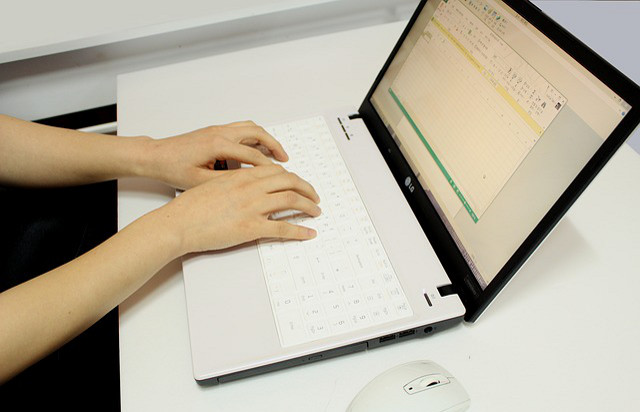Whenever you apply for a new job, often you need to send a great cover letter along with your CV. The cover letter is giving you the opportunity to introduce yourself to your potential employer in more creative and different way than the CV.

Before you start writing a cover letter
Before you start writing a cover letter, you need to prepare. Here are some tips on how to do it:
Think about your experience so far. Think how you’ll write down your experience so far and how it’s connected with the position to which you apply. What are your abilities and achievements, which would be assessed as useful by the company? Make a short list to make things easier when you start writing.
Where did you learn about the open position? If you learned about the open position by a friend or relative, mention his/her name. If you learned about the position from the Internet or newspaper, remember which conditions should be fulfilled. Then, in the cover letter and CV specify which requirements you have.
Learn more about the company. Search for information about the company online or in newspapers. Consider what attracts and motivates you to work for that specific company.
Find out who is your employer. Cover letters that aren’t intended for a specific person leave a bad impression. Cut yourself some time and call the company or see the announcement again, to find out the name of the person in charge of the new job openings and the job interviews.
What does a good cover letter look like?
Cover letter shouldn’t be too long, because it can ‘dilute’ the information and not leave a strong impression. Be practical and try your cover letter to be only one standard page in A4 format long.
How to write a great cover letter?
Start. At the top of the page write some personal information: your name, address, telephone number and e-mail.
The first paragraph. This is the introductory part of your cover letter and it’s very important, because it should immediately attract the attention of those who read it. It should say where you learned about the open position (a friend, an employee in the company or announcement or advertisement in a newspaper or online).
If you learned about the position from an employee in the company, don’t start with ‘My friend (friend’s name) told me that you have a job opening, so I decided to apply’. Instead, show more enthusiasm and write something like ‘I was delighted when my friend (friend’s name) told me that you have an open job position in your company.’
Second paragraph. Describe your qualifications briefly (skills, achievements), but without going into too many details. Choose three of your abilities that you think that would be highly appreciated by the company and focus on them. Other details need to be specified in the CV.
Third paragraph. This is the place where you can prove that you’ve done some research and know a lot about the company, what it produces or does and in which branch it operates. Specify that you are motivated to work in that company and how you can contribute to it. Most importantly, write why exactly you are the ideal candidate for that job position.
Ending. Write that you send a CV along with your cover letter and that you’ll be happy if they can find time to meet you personally.
Extra cover letter tips
Here are some few extra tips that you can follow that will help you to make your cover letter even better.
Cover letter is not an essay. People very often think that the style of writing for the cover letter should be the same as for an essay, but it shouldn’t be. The style of writing shouldn’t be too ‘philosophical’.
Paragraphs should be visibly separated. Cover letter should look nice and the person that reads it should easily read and understand it.
Don’t go overboard with the design or fonts. If you’re applying for a serious position, your cover letter should have a formal appearance. If you’re applying for a designer position, you can experiment a little with some color and a little more non-standard fonts, but it should be done neatly and it should look organized.
Watch out for spelling errors. Spelling and grammatical errors shouldn’t be part of your Cover Letter. Check the text for errors using some Spell Checker program and then reread the cover letter several times.
Ask for criticism. Ask someone close to you or a friend to read your cover letter and give you a constructive criticism.



